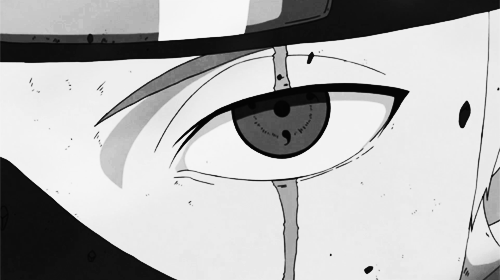So I started playing Crusader Kings II. The game that runs just before Europa Universalis IV, and allows you to transfer savegames towards it. That means that whatever empire I built in CKII will be transferrable to EUIV the moment I reach the 10th January 1453. And I currently believe that that empire will be magnicifent.
A long time ago, in a galaxy far, far away, I started playing as Count Hendrik I of Brabant. He was the Count of Brabant and ruled from his seat of power in Leuven. He realized that in order to expand his might, he needed to be a dick to his vassals, and in a short period of plotting got himself the Barony of Aarschot from one of his vassals, now dead. What killed him again? Oh, yes, murdered in his bed. I remember again. Then he died, and his realm was inheirted by Count Hendrik II of Brabant, who continued doing the same thing. Mercilessly expanding his realm at the expense of his neighbours through the sword and a devastating marriage policy, he named his first son and heir Alexander, feeling that God blessed his child, and that this young boy in his mother's arms would one day make a great Empire.
Skip to 50 years later, where King Alexander I of Frisia inherited the Duchy of Flanders from his mother (when she finally died at the age of 73, jeeeez) and continued to conquer the Dutch Counties in the North and East, untill he controlled all of the Dutch-speaking lands, and some small amount of French and Germanic lands. They did not object when he instituted himself to be King of Frisia, ruler over the 'Dietsche volk' and went on to be a dick to the Emperor and the King of France by expanding his borders into their respective backyards. Paris was as close to the borders of Frisia as Jülich, and nothing would return the situation to the one the lords of Europe liked more, expect perhaps the Frisian Kingdom falling apart. Such as by a very unhealthy system of spreading one's heritage so every child would receive a fair share. And then being Alexander and getting yourself 8 children. Luckily, a new Agnatic-Cognatic Primogeniture law allowed only the firstborn son or daughter if no sons available so Frisia was united once more. Ofcourse, Alexander's 8 children proved a mighty asset for marriage strategies, which led to the entwinement of England's throne and the Frisian grubby hand snatching for more power. (Yes, eversince Alexander's happy rule, all Frisian Kings were fat.) Nothing really resulted of these marriages except alliances and claims to thrones Alexander could not hope to achieve (Byzantium is really far away you know). At this point he did manage to inherit apart of the North-Western Po plains though, and eventually died. Iconic for his rule was his extermination of a side branch of House Reginar, as those rotten bastards repeatedly tried to kill his children:
How did all these assassinations on the side branch occur? Well, one died in the dungeons after 37 years of imprisonement, one was killed after an inn he was resting in mysteriously exploded in a manure explosion, one noble lady's carriage accidentally leapt off a cliff, a poor child was poisoned by his first wine, another noble lady found a dagger in her chest at night, and one died of a pneumonia before Alexander could get to her. The one still alive here didn't remain that way for long.
After Alexander came King Hendrik III. He did not do as much as his predecessor, but did fortify his grip on the realm though, and fought hard to improve the might of the throne against the upstart nobles of his newfound realm, managing to increase the crown authority significantly. The time of internal strife was finally over.
As time progressed Kings came and went, and the Kingdom of Frisia expanded further into France and the Holy Roman Empire, taking much of the French lands North of the Seine and all German regions South-West of the Rhine. They also aided in defeating the infidels in the Spanish Reconquista, where the Pope rewarded them with several regions for the amount of vigor they had shown during the crusade. Also important to note are King Hendrik III's wild adventures.
LADY GIJSBRECHT, HOW COULD YOU?
Finally, the reign of King Walter 'The Wise' of Frisia began, and he immediately started being a warrior king. He joined the Crusade to free the kingdom of Greece from the clutches of the Mongols who had invaded and practically wiped out the core of the Byzantine Empire. He had his efforts recognized by the Pope who in return for his support of more than 30.000 soldiers granted him the freed Kingdom of Greece along with all of its titles. Effectively having doubled the realm in size, the King of Frisia, Greece and Sicily wenton to populate his new lands with loyal vassals and Dutch Christians. An era of stabilisation would take place in the East under his reign, noted by the Grand Feast of 1289.
Which was ruined by Bishop Koenraad ofcourse.
Yes, King Walter was truly a masterful diplomat, who managed to force the Emperor of the Carpaths into the following marriage through subtle guile and impressive rumormongering.
Emperor Gaspar must've really liked the lowborn Margareta, who was shy, ill, and an imbecile. She also had not a single penny, not a grain of prestige and was hardly a true Christen. At least she was young and looked nice?
Later, during the so-manieth conflict between The Kingdom of Frisia and its allies in England, Denmark, Aragon, Ireland, Castille and its new vassals, the Knights Hospitaller against an unlikely alliance of the Holy Roman Empire and the Byzantine Empire, King Walter's men fought the Imperial armies in the passes of the Alps. Despite being greatly outnumbered, they still managed to not only overcome their foes, but also strike at the very hearts of their cohesion, killing their leaders.
The Pope is actually a victim here, as he lost the fight for independance from the Empire and now serves as yet another bannerman for the Kaiser. This guy was actually my friend.
Also important to note is howmany bastards there are running around as of recently. King Walter might love his wife, but he certainly loves women a lot more!
Nevertheless, today, in the year 1301, the dawn of the 14th century, Europe is a diverse place where the 'Dietsche volk' can thrive in peace, ... and war!








 ''
''


 ''
'' ''
''